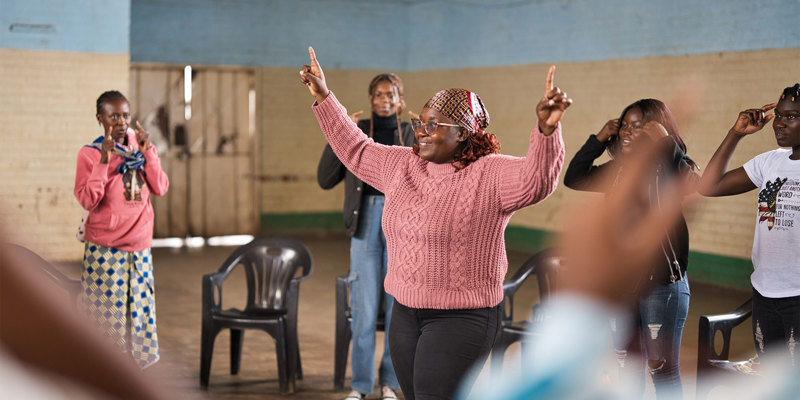

Bangladesh: Providing TB Services to People Displaced by Climate Change
Bangladesh has the sixth-highest tuberculosis (TB) burden in the world – but the country’s response has been consistent and robust. Every year, more than 300,000 people with TB are identified and connected to treatment. Deaths attributed to TB have fallen by 36% since 2015, and the country has sustained a 95% treatment success rate for nearly a decade. And yet, the escalating impacts of climate change threaten the country’s progress toward eliminating the disease.
Bangladesh is ranked the seventh extreme disaster risk-prone country in the world, according to the report from the Global Climate Risk Index 2021. The country's air quality is among the world’s worst. TB is more prevalent in people exposed to air pollution. Bangladesh is vulnerable to cyclones, flooding, extreme heat and rising sea levels. Populations along the coastline bear the brunt of catastrophic storms: homes and essential health infrastructure destroyed by wind, rain and floods, and an increasingly contaminated water supply.
Every year, hundreds of thousands of people move to Bangladesh’s capital, Dhaka. According to the International Organization for Migration, approximately 70% of the people that migrate and settle in the city’s poorest areas were forced to leave their homes because of climate-related disasters. In Dhaka, climate migrants live in cramped living quarters with inadequate hygiene – the perfect conditions for TB to spread. In the first six months of 2024, more than 1,060 people who tested positive for TB in Dhaka were new arrivals who left home because of rain and floods.
The government of Bangladesh’s National TB Program and BRAC, Global Fund partners in Bangladesh, are adjusting testing and treatment services to meet escalating demand in Dhaka’s poorest neighborhoods. This includes increasing case finding activities and supplying preventative medicine for people with TB so that their families and neighbors are less likely to get sick. They are also channeling funds to provide nutritional support to the most vulnerable people in these communities, and procuring mobile X-ray machines that are easy to carry and use in confined spaces.
With resilient, nimble partners, sustained investment and flexible funds to tackle evolving crises, Bangladesh can overcome the challenges posed by climate change and stay on course to eliminate TB.







